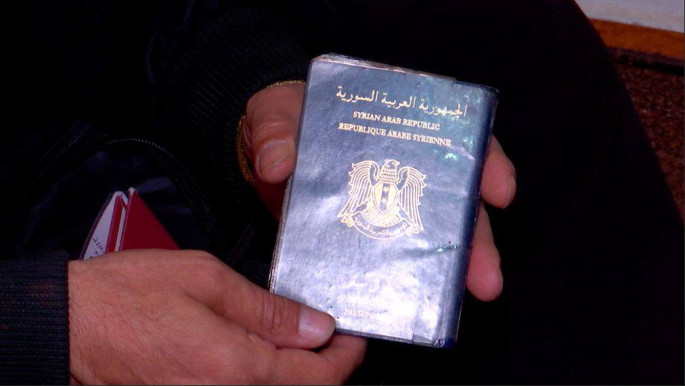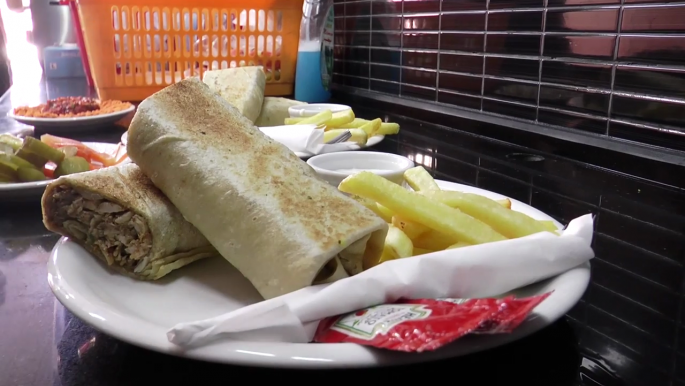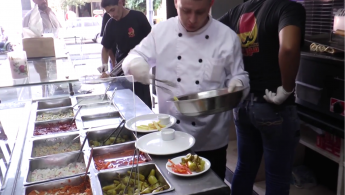Syrian refugees find unlikely haven in Gaza
And, as unlikely a destination as it may seem, Gaza has become home for families fleeing Assad's war. Dozens of Syrian families have arrived in Gaza in the past six years carrying their sorrow and memories of a country destroyed, hoping to find a better place to live.
Since 2012, more than 600 refugees fleeing the daily suffering and bombardment in Syrian cities made their way to Gaza. Two-thirds of them were Palestinian families expelled in 1948 during the Nakba, the Palestinian catastrophe, who became refugees in Syria.
Not all Syrian refugees who arrived in Gaza have stayed - six families have again left the Strip looking for safety. Unlike the Palestinian refugees who came to Gaza in 1948 from across Palestine, Syrian refugees have not been able to receive medical, financial or educational help from the Gaza-based UNRWA, the UN's agency for dealing with Palestinian refugees.
UNRWA said the refugees fall under the remit of UNHCR, the UN's main refugee agency - who do not have a branch in Gaza. Between them, Syrian refugees in Gaza have found little support.
 Wareef Hmedou, Chairman of Syrian Families in Gaza, and a refugee from Aleppo, describes the situation of refugees in Gaza as "intolerable".
Wareef Hmedou, Chairman of Syrian Families in Gaza, and a refugee from Aleppo, describes the situation of refugees in Gaza as "intolerable".
"Syrians in Gaza are suffering from an economic crisis, they don’t have the basics to be able to live," the 36-year-old added.
Due to the ongoing siege of the coastal enclave, Syrians living in Gaza are unable to secure jobs, and most rely on the help they can get from Gazans.
"They can't afford to pay their rent bills or to get health insurance."
Despite all this, there are dozens of Syrians, including Hmedou, who succeeded in starting up their own businesses in the Strip, despite the high unemployment and poverty rates. Some opened restaurants, and others opened coffee shops.
 |
UNRWA said the refugees fall under the remit of UNHCR, who do not have a branch in Gaza. |  |
Before leaving Aleppo, Hmedou had a restaurant, but was unable to maintain it under constant attack. He fled to Turkey where he stayed in a refugee camp. He started looking for a job in Turkish cities, but his lack of Turkish language proved too challenging, forcing him to Egypt where he worked in a Syrian restaurant for eight months, before coming to Gaza through a tunnel between Gaza and Egypt.
"It was my wish to visit Gaza. Gazans are kind people, and their traditions and customs are just like ours."
Hmedou, who has married a Gazan girl, and has a daughter with her, hopes to travel to France to learn more about cooking and to participate in international cooking contests.
 |
The Syrian refugees living in Gaza reside in their second country, Palestine - President Mahmoud Abbas |  |
Like Hmedou, Ghassan Hasouna, a Palestinian-Syrian refugee came to Gaza and started his business with a now-famous dessert shop in Khan Younis.
At the beginning, Hasouna stayed with relatives in Gaza, but their financial situation forced him go looking for a job, and he started his business making Syrian desserts.
"After coming to the dessert shop, I showed my skills in making desserts to the owner, and now I'm an integral part of it"
In response to a Syrian refugee's complaint at a local radio station, Palestinian President Mahmoud Abbas, instructed in a presidential statement, to issue Palestinian Authority passports for those families, and to list their names in the Ministry of Social Affairs programme for cash assistance.
"The Syrian refugees living in Gaza reside in their second country, Palestine, and we will never forget how they stood beside Palestinian refugees in the 1948 catastrophe," the statement said.
It is not the siege, nor the wars that leave the refugees unhappy in Gaza. It is the homesickness.
"A man's country is not a certain area of land, of mountains, rivers, and woods," said George William Curti. "But it is a principle - and patriotism is loyalty to that principle."
Mohammed Arafat holds a bachelor degree in Teaching English as a Foreign Language and is preparing for a Masters in Peace and Conflict Studies. Author of, Still Living There, a book documenting Gaza's last war and its aftermath.
Opinions expressed in this article remain those of the author, and do not necessarily represent those of The New Arab, its editorial board or staff.



